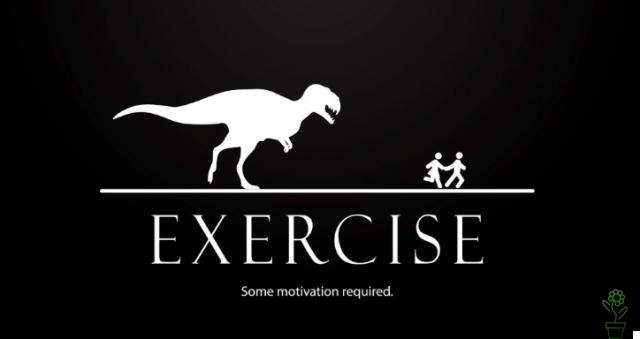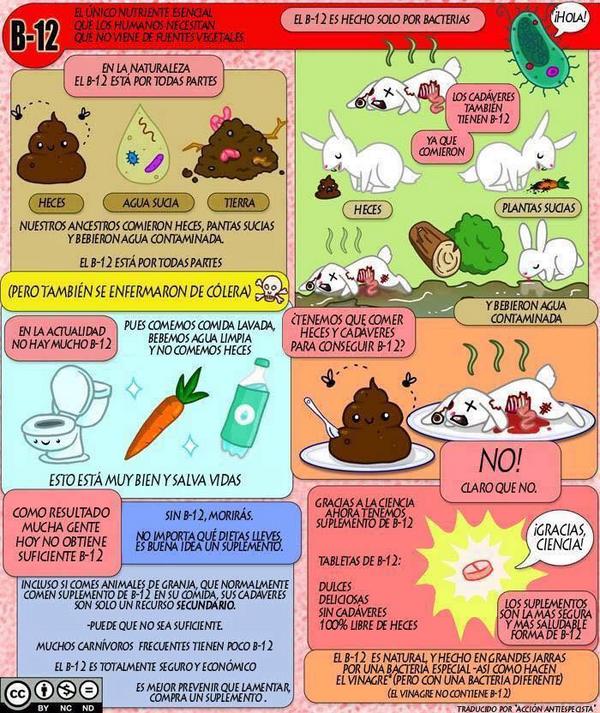
Motivation is an emotion that pushes us towards our goals, it is the engine of every action we do.
Or rather, it should be. Because in fact it is an emotion as strong as it is deceptive and inconstant.
Whether it's motivation to study, work, diet, or whatever other goal we have in mind, it creates a lot of problems for us:
- Many people they find it easily, but then they make a huge effort to keep it over time. These people start many activities with great enthusiasm, but they tend not to complete any, except with great effort and continuous stop along the way.
- Other people instead they struggle to motivate themselves, that is, to find the necessary stimuli, in themselves or in what surrounds them, to undertake any activity. AND' as if they could never want anything quite strongly, and as a result they feel apathetic and bored.
- Still others, finally, are able to motivate themselves and go on for a long time, but low intensity, without never really commit completely.
Do you recognize us? Yes, because we all belong to one or more of these categories.
Today we will then go and analyze motivation together, step by step, to understand how to find it, how to maintain it and how to give it the necessary intensity.
Here is the full summary of the article:
1 - The 2 reasons why everyone is looking for motivation
- Practical Reason
- Cosmic reason
2 - But what is it, exactly?
3 - The 4 types of motivation according to classical psychology
4 - The big misunderstanding of intrinsic motivation
5 - How to motivate yourself, really, and in a stable way
6 - The importance of doing "what you believe in"
- Self Consciousness
- Priority
- Regrets
7 - The 3 strategies to keep it
- Plan for the long and short term
- Work in the "flow"
- Translate motivation into habits
8 - Conclusion: start immediately!
Why is motivation so important?
Everyone would like to be "more motivated" ... But have you ever wondered why "being motivated" is so important for humans?
There are at least two basic reasons.
- The first, I would call it more "practical": we want to be motivated because this makes things easier for us.
- The second, I would call it more "cosmic": we need to be motivated, so as not to depress us and to give meaning to life.
Let's see them both better
Motivation makes things easier
When you have to do something and you don't feel like it, you find yourself in an uncomfortable situation.
Indeed:
- You can not do it, or do it little and badly. But you know this takes you away from your goals, and it also gives you some guilt.
- Or you can try hard, and do it. But that means dealing with boredom and fatigue.
So here is the motivation, if it came to you with a stroke of a magic wand, it would get you out of this dilemma.
Because having motivation is as if broccoli tastes like chocolate, and vice versa!
That is, let me explain:
Most of the things that are good for you taste bad, while the things that are bad for you are delicious. While if it were the other way around, it would be really easy to be fit, right?
And so it is with the motivation: if we always had them, and in large quantities, nothing would weigh on us. Not even the most ungrateful of activities. And so we desperately want it.
Motivation gives meaning to life
Behavioral psychology has developed an entire "theory of motivations", linking them from a neuro-psychological point of view to the different brain structures present in humans:
- Some are related to primordial structures of the brain, and we share them with other animals. Correspond to instincts like hunger, thirst, fear, survival instinct…. and they guide our actions exactly as they do for all other living beings.
- On a different level there are those typical of human emotional sphere, such as the sense of belonging, or the desire to be loved.
- Finally then, it seems that man needs it "in and of itself", that is, he needs to feel emotions, positive or negative, about what he does. To always keep a certain level of "arousal" with respect to life, without which he would fall into apathy or even depression.
In this last sense, then, the motivation takes on a "cosmic" meaning: that is, it becomes a fundamental ingredient of our happiness, regardless of the causes that trigger it and the objectives it pursues.
It is worthwhile, then, to delve a little deeper into this strange emotion.
What exactly is Motivation?
“Motivation is the emotion that initiates, guides and maintains our behaviors. It directs itself towards goals, and constitutes the because we do what we do"
This is a great definition:
a) First, since he puts her among the emotions, giving reason for his somewhat erratic and capricious character.
b) Then, because it includes all three dimensions of motivation.
Remember them because we will come back to:
- Activation: that is, what makes us initiate.
- Persistence: that is, what keeps us going.
- Intensity: that is, with how much concentration and strength we carry things forward.
c) Finally, because it highlights an essential element, namely the fact that it has as its object target.
"Why we do what we do" is the subject of a branch of psychology called "behavioral".
And that has divided the motivation into 4 classic categories, which we are now going to see.
The types of motivation: intrinsic, extrinsic, positive, negative.
The different types of motivation are represented in a classical way with the following scheme:
Positive Negative
Intrinsic I/P I/N
Extrinsic E / P E / N
Le extrinsic motivations essentially correspond to the so-called reward / punishment systems, which for centuries have formed the basis of the education of children or the management of companies:
- If they promote you, I'll buy you a scooter (extrinsic, positive or E / P)
- If you don't do your homework you won't be able to go to the party (extrinsic, negative or E / N)
- If you work 12 hours a day I give you a raise (extrinsic, positive or E / P)
- If you don't work you lose the promotion (extrinsic, negative or E / N)
Beyond these examples, note that extrinsic motivation does not always come from “others”. We ourselves can in fact condition ourselves with a system of rewards and punishments.
However, centuries of experience and dozens of scientific studies have shown:
- Little use, in the medium-long term, of these extrinsic strategies. Since there is no reward or punishment that can, in the long run, make you do what you don't like. Do not you think?
- Their potential harmfulness: if you get used to doing things, even those you like to do, associating them with rewards-punishments, you depress your ability to intrinsically motivate yourself.
Therefore, it is not worth relying on extrinsic motivation that much.
Indeed, you should get rid of it and get it out of your mentality forever. You won't need it neither to really motivate you, nor to really motivate others.
However, it deserves more attention intrinsic motivation, that is, that which comes from within ourselves.
It derives from tastes, ideas, passions, preferences, objectives, and depends on the free conviction of the individual; for this reason it is more powerful, but it still has limitations, at least in the conception in which we use it now.
4 - Intrinsic motivation: let's dispel a myth
Ok, it's true:
- If you have a strong desire to become a doctor, it will be easier for you to spend Sundays on books. (Intrinsic Positive or I / P)
- If you really want to be fit, it will be easier for you to give up smoking. (Intrinsic negative or I / N)
The problem, however, lies in the concept of "if you wish".
What exactly is meant?
In recent years it has been identified above all with the concept of "if you like".
And in fact everyone, from grandma to your favorite personal growth blog, always advises you to "do something you enjoy".
This is a piece of advice that, however, has great limitations:
- First of all in fact we have seen that there are people who find it hard to motivate themselves "in general". I mean, it's as if he liked nothing enough.
- Secondly, "do what you like"Is very effective with regard to the" activation "of behavior. However, it is much less so as regards the other two dimensions, namely "persistence" and "intensity".
In short, especially in long-term projects, the fact that something excites us for a shorter or longer moment is excellent, but in itself it does not guarantee any results.
Because as soon as we like that less, or another comes along that we seem to like more, we risk giving up everything there. With the result of starting many things without ever completing one.
Intrinsic motivation: how to really find it
So, we have seen that it is do what suits us, is do what we like I am somehow capable of trigger our actions.
From a point of view of the other two dimensions, however, that is persistence and maintenance, none of the methods are reliable, because they lack the requirement of stability.
Then we must try to hooking the motivation to something more solid.
This something is more stable do what you believe in: both from the point of view of the objectives and from the point of view of the modalities.
Do what you believe in:
- When you do something that is really worth it to you.
- When you do it in a way that is deeply aligned with yours system of values and your deepest beliefs
So your motivation is already strong.
You have linked it, in fact, to a much more persistent psychological core than the simple "I like it"; a core that, even when it changes, generally does so slowly and reasonably.
To motivate yourself you have to "do what you believe in"
What you believe in is not limited to the emotion of the moment, but it is a mixture of emotion and reason. And it best describes you as a human being.
Furthermore, what you believe in also incorporates the other two dimensions seen above.
While, in fact….
- What suits you, you don't necessarily like it ...
- ... And what you like may not necessarily suit you ...
… Usually, what you believe in, in the long run, suits you and you like it.
For this reason, finding motivation by hooking it up with what you believe in has at least 3 huge advantages:
1 - Greater awareness
We tend to judge convenience and pleasure mostly in the short term, without much introspection.
While defining what we believe in is more complicated, and presupposes a better analysis of yourself, that is, of who you are and what you really want.
2 - Greater effectiveness thanks to the guide of "priorities".
Stephen Covey, in his motivational book “The 7 habits of highly effective people”, defines this very clearly: put first what comes first.
It seems obvious, except that all of us, all the time, devote a lot of time to things that are not important at all. Perhaps precisely because we have not clearly defined those that are.
Once you have established what are your true goals and your true values, it will be much easier for you to say "no" to everything else, saving you time and energy.
3 - Fewer regrets.
Choosing on the basis of what suits us at that moment or what we like at that moment is, by definition, a short-sighted strategy.
And it can cause you to make big mistakes, then triggering long chains of regrets.
While when you do what you believe in, you hardly regret it. Even when things go wrong.
Motivation put into practice: 3 fundamental strategies
Therefore, doing something you believe in is the prerequisite to find a stable motivation and increase your chances of maintaining it over time.
However, from a practical point of view, it's not like you can go back to your core values every time you have to do something.
Let me explain: let's say that you are studying at university, and that you have established that this, in some way and for your reasons, resonates with your core values, that is, who you are with and what you really want.
This protects you from changing your choice every six months, gives you priorities, protects you from the regret of "what I could do and didn't do".
But it's not that every day, to get on the books, you can use it as a lever to study!
Instead, you need a little more practical strategies:
1 - Plan long term and short term
If you have to get up every morning and find the motivation or inspiration to plan the day's activities, your life gets pretty complicated. (-> Go to my article on secrets to find inspiration).
Instead, what you have to do is plan what you do in advance. That is, once you have established that a "project" is worth a part of your life, be it an exam, a job or a diet, you have to include it in two types of planning:
Long-term, and therefore:
- Break it up into many moments.
- Make sure you assign a time and place to each of these moments
Short term, and therefore:
- Never start a day without having decided at least 80% of what you will do. Why 80%? To leave room for the unexpected, creativity, and opportunities.
- Never finish a day without giving yourself feedback, even in just 30 seconds, on the progress you have made.
And do this kind of planning in writing!
It will help you to think and act as a map, as I explain in the free pdf The 7-minute technique.
2 - Choose the right activities, and you will work in the "flow".
Even if you are motivated towards a goal that resonates perfectly with your values and what you believe in, remember that you are still a human being, with all its weaknesses.
So, in practice, for pursue your goals without being discouraged, you have to do it through a series of activities that are suitable for keeping your motivation by making you stay in the "flow".
But what the heck is the "flow"?
"The flow is a optimal experience (often referred to as competitive trance in sports language), in which the person is completely immersed in an activity. This condition is characterized by a total involvement of the individual: focus on the goal, intrinsic motivation, positivity and gratification in carrying out a particular task "(Wikipedia )
It is a concept introduced in 1975 by the psychologist Mihály Csíkszentmihály in his book “FLOW”, and which depends on many characteristics. Among them, the one that interests us today is the relationship between difficulty and ability.
Imagine to play a game of chess, or tennis:
- If your opponent is too weaker than you, you're bored.
- If it is too much stronger, you feel frustrated.
While ideal, to be stimulated, for to be in the "flow", it's playing against someone just a little bit stronger or just a little bit weaker, depending on what day you are on.
The same is true for any activity: when it is too complex or too easy we “get out of the flow”, and we are unable to maintain the right motivation, as this is supplanted by frustration or boredom.
Sometimes then, if the goal is too demanding, it can even scare us.
In my article on "willpower" I spoke at length about this aspect, which in the end is resolved by keeping in mind a single sentence:
“How do you eat an elephant? One bite at a time. " (Confucius)
Which also applies very well to motivation!
So, if you want to get fit, write a book, pass an exam, or become a rock star, and want to keep your motivation to the max, do so. to break this objective down into a series of actions that are neither too difficult nor too easy.
This will help you keep interest alive without ever getting discouraged.
3 - Translate motivation into habits
Habits are ours automatic pilot, that is, they are actions disconnected from our willpower and our motivation.
Good or bad, it took some time to get them; and maybe even a considerable effort of will (or NOT will, in the case of bad ones), or a great motivation.
But then they disconnected from the will and motivation, and turned into habits. Things that is that we do for the simple fact of having already done them many other times before.
The power of habits is immense, because in fact, what we are is the sum of it:
our health, our success, our bank account, our university average, the languages we speak, what we can do or not do ...
Think about each of these things, and you will see how they rarely depend on a single gesture or event. Instead, they are mostly the result of things we do routinely and over long periods.
Now, imagine your motivation driving you to take a series of goal-oriented actions. The most logical thing, instead of waking up every day hoping that the motivation will never falter, is to transform these actions into habits.
And do it as soon as possible!
In this behavior pattern therefore:
- The motivation is what makes you overcome the initial inertia and sets you in motion.
- Habit is what you keeps moving, almost effortlessly, towards your goals.
A bit like in physics: starting a body costs a great deal of energy. Much less, however, is the energy needed to keep moving it.
Motivation: start immediately
From all that we have said we can establish, as regards the motivation, two different moments, both important:
The first, it's about defining long-term goals and verifying that they are aligned with what you believe in and who you are.
This way your motivation it will not dissolve at the first difficulties or the arrival of other "sirens".
The second one instead it concerns daily living, and plans to plan, choose, and repeat the activities you do, to structure them within habits.
This way you will be able to maintain the initial boost of motivation with minimal effort.
What you need to do is simply rely on this two-step process, and repeat it from time to time. In this way you will be able to satisfy both needs for which we all seek motivation.
Remember?
We discussed this at the beginning of the article:
- Getting the things you want easier, with less effort and fatigue.
- Try the very emotion of "feeling motivated" , which gives more meaning to what you do and makes you happier.
A greeting. Armando.
PS Do you want to learn more about my articles related to motivation? Read the posts:
Motivational books: the 5 that I recommend.
Procrastination: why we do it and how you can stop
Inspiration come to me: because the breath of ideas helps the student in crisis
Bridget Jones and willpower
Do you want to study? It does not exist, and in any case it is useless

























